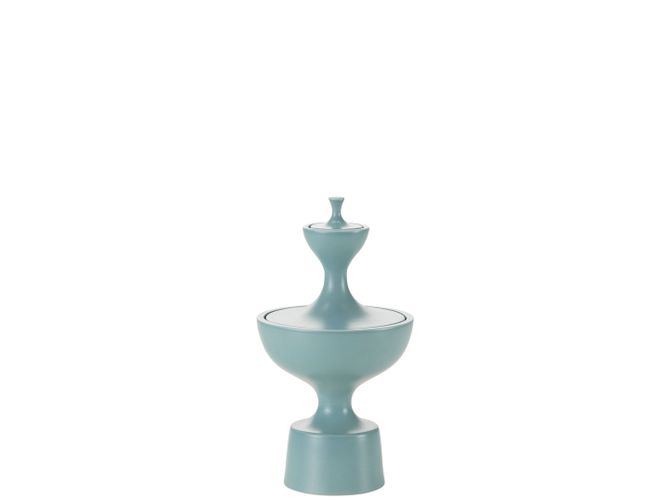
Ceramic Container No. 1
Alexander Girard, 1952
Ceramic Containers
Alexander Girard's work brought a sensuous playfulness to twentieth-century design that had been absent from the austere aesthetic of classic modernism. This also finds expression in the Ceramic Containers. The three original models were made of wood, hand-turned by Girard on a lathe in his workshop. Their silhouettes are reminiscent of the traditional shapes of apothecary vessels, board game tokens or millinery blocks. The original wooden objects are held in the Girard Archive at the Vitra Design Museum. Using these models as templates, Vitra joined together with the Girard family to develop the Ceramic Containers in cast ceramic. The hand-glazed pieces feature hues from Girard's rich colour palette and can be used to store keys, coins or odds and ends, or serve as attractive dishes for snacks and other items. The natural material lends the Ceramic Containers an artisanal flair. Along with his colleagues Charles and Ray Eames and George Nelson, the designer and architect Alexander Girard was one of the leading figures in American design during the post-war era. While textile design was the primary focus of Girard's oeuvre, he was also admired for his graphic art as well as his work in furniture, exhibition and interior design.
Alexander Girard
The architect and designer Alexander Girard was one of the leading figures in American design during the postwar era. His passion for colours, patterns and textures found expression in the field of textile design, which was a focal part of his oeuvre.